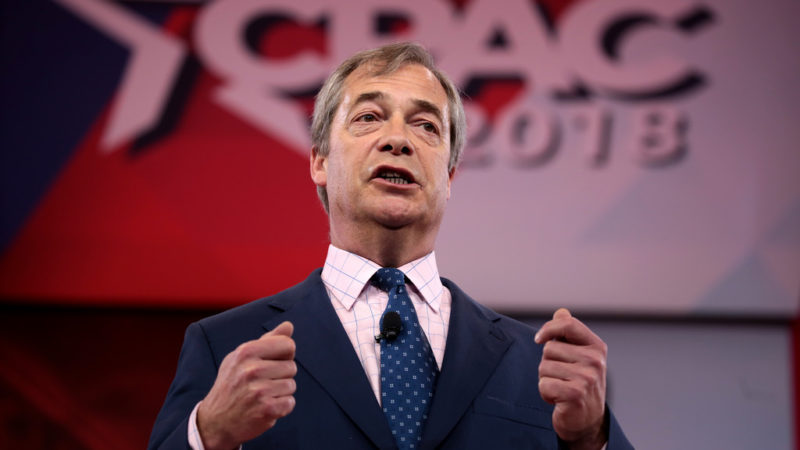Every other political party cooperated fully with the investigators.

UKIP was the only political party to dodge questions from the Independent Commissioners Office (ICO) on its use of personal data in political campaigning.
In Wednesday’s ‘Democracy disrupted?‘ report into how political parties acquire and use our information, the Eurosceptic party is accused of supplying “brief, inadequate and in some instances possibly inaccurate” answers, which meant researchers were “not able to progress” with their investigation into the party.
Ten other political parties approached by the ICO cooperated fully, but UKIP appealed unsuccessfully against having to release information to researchers, stalling the investigation.
Since March last year the ICO has been looking into whether personal data was misused by either campaign in the Brexit vote. In May it launched a broader investigation that included political parties, data analytics companies and major social media platforms.
The report on progress so far gives details of some of the organisations and individuals under investigation, including Facebook which the ICO intends to fine a maximum £500,000 for two breaches of the Data Protection Act 1998.
Facebook, with Cambridge Analytica, has been the focus of the investigation since February when evidence emerged that an app had been used to harvest the data of 50 million Facebook users across the world. This is now estimated at 87 million.
Facebook is accused of breaking the law by failing to safeguard people’s information and failing to be transparent about how people’s data was harvested by others.
However the report is critical of many other organisations, including major political parties which gather information on the electorate in a huge variety of ways and are sometimes unclear on how this is used. Sources of personal data listed in the report include online retailers, advice services and loyalty cards.
Information was also gathered about how parties run their campaigns, with the report finding together they spent £3.2 million on direct Facebook advertising during the 2017 general election – up from £1.3 million during the 2015 general election.
The report concluded that “parties must all make significant efforts to improve the prominence, precision and openness of the information they provide to the public about how their data is used”.
A statutory code of conduct should be introduced for data and political campaigning, the ICO has said, before the next general election.
Charlotte England is a journalist based in London. Follow her on Twitter.
To reach hundreds of thousands of new readers we need to grow our donor base substantially.
That's why in 2024, we are seeking to generate 150 additional regular donors to support Left Foot Forward's work.
We still need another 117 people to donate to hit the target. You can help. Donate today.



